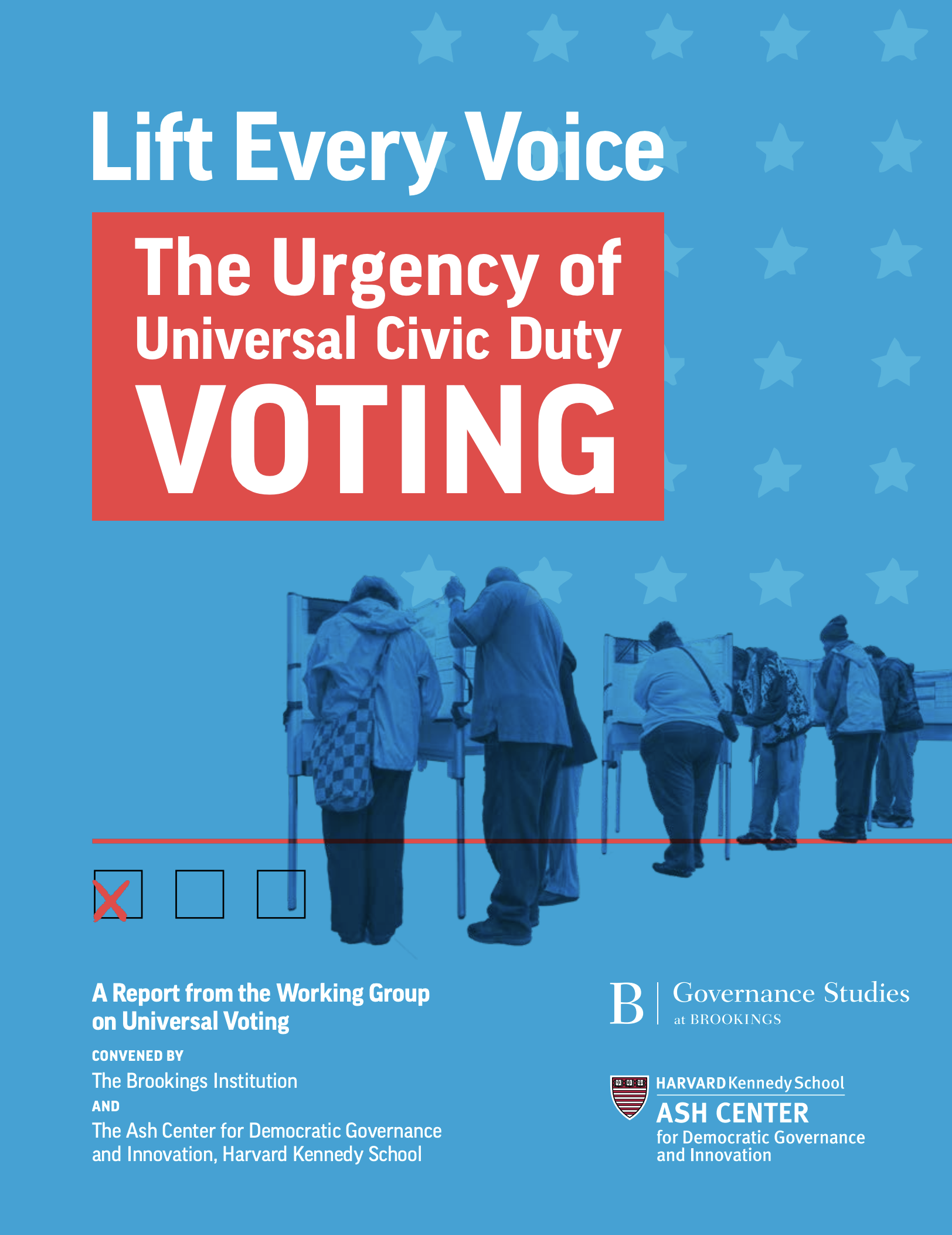
Podcast
Preparing for the Election Meltdown … or Not
Co-hosts Archon Fung and Stephen Richer weigh conflicting predictions for the 2026 midterms and explore how to safeguard a free and fair election.
Policy Brief

Imagine an American democracy remade by its citizens in the very image of its promise, a society where the election system is designed to allow citizens to perform their most basic civic duty with ease. Imagine that all could vote without obstruction or suppression. Imagine Americans who now solemnly accept their responsibilities to sit on juries and to defend our country in a time of war taking their obligations to the work of self-government just as seriously. Imagine elections in which 80 percent or more of our people cast their ballots—broad participation in our great democratic undertaking by citizens of every race, heritage and class, by those with strongly-held ideological beliefs, and those with more moderate or less settled views. And imagine how all of this could instill confidence in our capacity for common action.
This report is offered with these aspirations in mind and is rooted in the history of American movements to expand voting rights. Our purpose is to propose universal civic duty voting as an indispensable and transformative step toward full electoral participation. Our nation’s current crisis of governance has focused unprecedented public attention on intolerable inequities and demands that Americans think boldly and consider reforms that until now seemed beyond our reach.
Podcast
Co-hosts Archon Fung and Stephen Richer weigh conflicting predictions for the 2026 midterms and explore how to safeguard a free and fair election.
Podcast
White House reporter Annie Linskey offers a closer look at how the Trump White House makes decisions and what recent actions reveal about its strategy.
Podcast
Jonathan Rauch joins the podcast to discuss why he now believes “fascism” accurately describes Trump’s governing style.
Commentary
Allen Lab Policy Fellow Christine Slaughter makes the case that democracy must be understood through people’s lived experiences and agency, not just institutions.
Podcast
Co-hosts Archon Fung and Stephen Richer weigh conflicting predictions for the 2026 midterms and explore how to safeguard a free and fair election.
Feature
Economists and policy analysts broadly agree that more housing needs to be built in order to reduce costs in America’s most expensive cities. Using a novel survey of mayors of mid-sized and large cities to explore mayors’ views on the roots of America’s housing crisis and what solutions they believe will most effectively address their constituents’ housing challenges, the authors summarize mayors’ attitudes and perceptions on key issues related to expanding the housing supply, reporting how well these views correlate with mayors’ assessments of their own cities’ supply needs.


